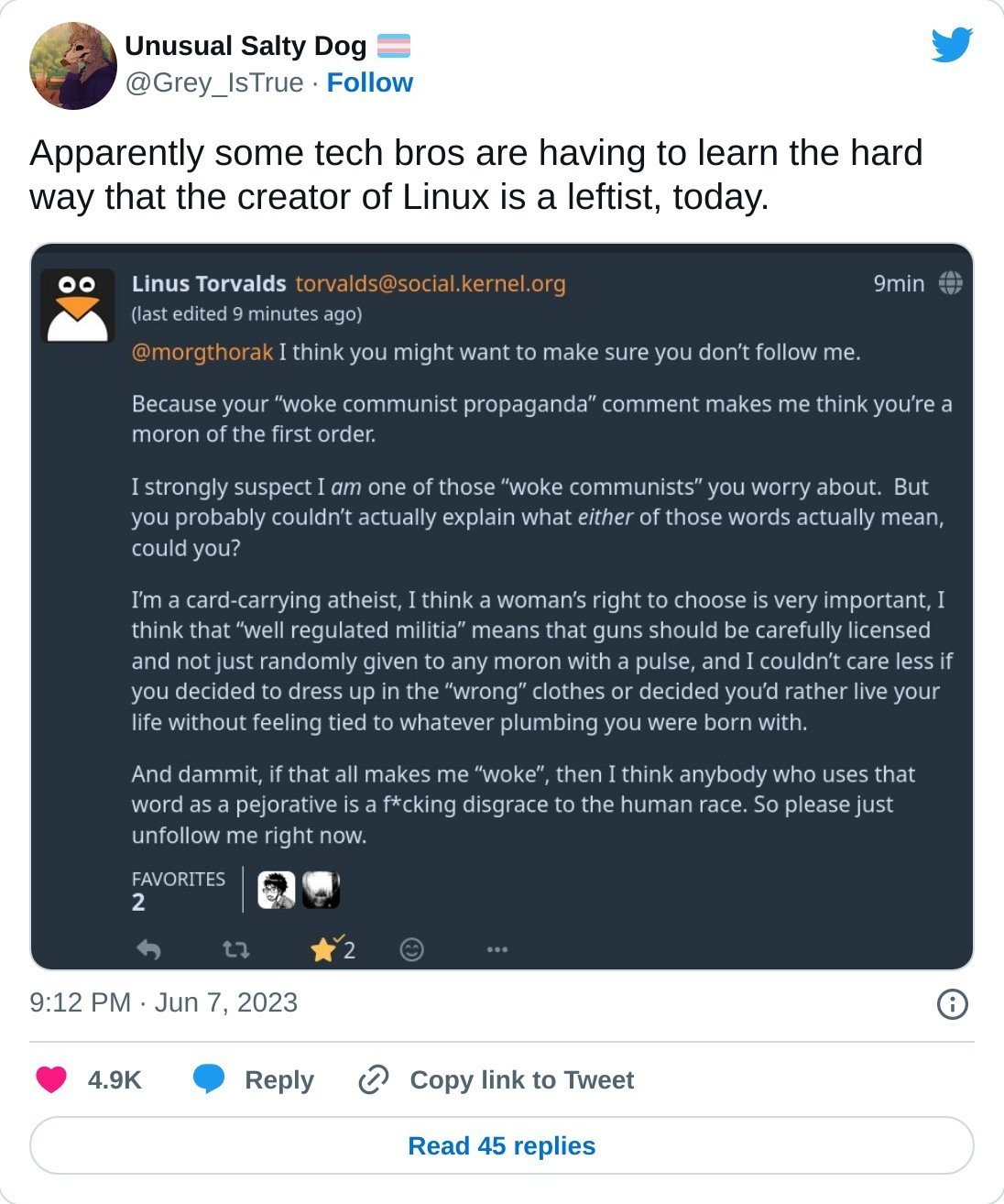this post was submitted on 11 Feb 2025
1816 points (99.1% liked)
Microblog Memes
6518 readers
4828 users here now
A place to share screenshots of Microblog posts, whether from Mastodon, tumblr, ~~Twitter~~ X, KBin, Threads or elsewhere.
Created as an evolution of White People Twitter and other tweet-capture subreddits.
Rules:
- Please put at least one word relevant to the post in the post title.
- Be nice.
- No advertising, brand promotion or guerilla marketing.
- Posters are encouraged to link to the toot or tweet etc in the description of posts.
Related communities:
founded 2 years ago
MODERATORS
you are viewing a single comment's thread
view the rest of the comments
view the rest of the comments

atheism isn't a lack of belief. Atheists belive that there is no god. Someone who doesn't believe in either or is an agnostic.
An agnostic doesn't believe it's possible to know if god exists. A gnostic thinks it's possible.
Agnosticism is about knowing, atheism about beleiving. So if you don't know if god exists but firmly believe the idea is a load of crap you're an agnostic and an atheist.
To be pedantic, gnosticism is a christian sect from the first centuries BC. γνῶσῐς means "knowledge", which is where the word agnostic comes from, but the term "gnostic" was already spoken for so to speak.
For anybody having trouble following…
Nobody knows if God exists. It is not a proven fact.
Some people believe that they know. Some of them really, really believe it.
If you believe something that did not arrive at through hard fact, that is faith. Strong faith is religion.
So what is being said here is that many atheists are in fact quite religious—they just do not believe in God.
A good test is to explain the difference between agnostic and atheist. Anybody that insists on calling themself an atheist after that has is acting on faith ( not fact ) and has religion.
Prove that the Jersey devil doesn't exist. Do that, and you will have made me into a religious atheist and we'll all point and laugh at me.
Or, is it only reasonable to give these special privileges to some hypotheses, and not others?
A better test of whether someone's religious is this: do they try to convince you that atheism is a religion?
The science, so far, says a god doesn’t exist when measured against the moving goal posts of religion.
I am an atheist but I believe in science and CERN would be my church.My belief goes with the Higgs boson aka God particle. I don't talk others out of their beliefs as long as they don't try to force their beliefs on me.
I'm agnostic about other gods but my religion is not believing in the Abrahamic god as described in the bible.
Atheism is exactly that though. Theism is a belief in a higher power, atheism is the opposite. That's what the "a" prefix indicates - an opposite.
The reason these people can't comprehend lack of belief is because they are stuck thinking god is a default state - that it requires belief to assert it isn't real. When in fact the concept of god is no different than every other deity, Greek god, unicorn, space teapot... you name it. It is nothing more than a regionally popular unfalsifiable claim. They can't wrap their minds around who the burden of proof falls on.
Atheism and agnosticism are two different things. Atheism is the rejection of a higher power, you believe there cannot be a higher power. Agnosticism is the acceptance of the unknown, you believe you don't know if there is or isn't be a higher power.
In a hypothetical scenario where higher power does exist and that higher power does something that becomes evidence of the existence of a higher power. An atheist would reject such evidence because a higher power cannot exist and the evidence would be contradictory. An agnostic would not reject such evidence because an agnostic is not rejecting a higher power and as such the evidence would also not be contradictory.
And in a reverse hypothetical, let's say we discovered all the secrets of the universe and found evidence of higher powers not being able to exist. A theist would reject such evidence because a higher power must exist and the evidence would be contradictory. An agnostic would not reject the evidence because the evidence would not be contradictory.
And I personally lean on the apathetic side of agnosticism. If there is a god (or gods) then there is a god (or gods), and if there isn't then there isn't. There's no reason to mull over something that has had no bearing on my life and if tomorrow we get irrefutable evidence for either side that's when I'll deal with that new reality. In the mean time there are better things to do.
I am an atheist because I do not believe in god, not because I think that a god cannot exist. I am an atheist because the burden of proof is on those who claim that a god does exist. If such proof were to exist (and pass scientific scrutiny, not rely on faith), I would believe in a god.
I understand what you're saying, but in reality, the definition of 'atheist' is a lot broader than you are asserting. Simply not having belief in a god to begin with is enough to be an atheist.
An atheist can, but does not necessarily, reject the notion of a higher power inherently.
Hugely relatable.